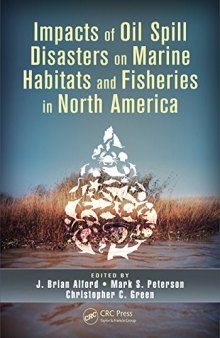 جزییات کتاب
جزییات کتاب
At an increasingly global scale, aquatic scientists are heavily entrenched in understanding the fate of marine ecosystems in the face of human-altered environments. Oil spill disasters, especially large-scale ones like the 2010 Deepwater Horizon tragedy, have left uncertain and indelible marks on marine ecosystems. Impacts of Oil Spill Disasters on Marine Habitats and Fisheries in North America contains independent scientific findings and critical reviews from experts researching the impacts of the Exxon Valdez, Ixtoc I, and Deepwater Horizon oil spills on coastal fishery resources. Comprised of three sections, this seminal work: Details the physiological effects of oil-derived compounds on fishes, presenting results from field and laboratory investigations Addresses the science of assessing the impacts of oil spills and oil response measures on coastal habitats, with an emphasis on salt-marsh ecosystems in the Gulf of Mexico Explores the quantified and potential impacts of oil spills on population and community dynamics of commercial and recreational fishery species Provides newly released results from the 25-year recovery of marine mammals, birds, and fishes following the Exxon Valdez spill Chapters discuss new techniques for collecting and processing blood samples for toxicity testing, new aerial radar techniques for detecting unseen oil on marshes, consequences of oil prevention measures (such as diverting fresh water to estuaries or building sand berms to stop oil) on coastal fishery resources, and non-traditional methods for assessing the herring stock in Prince William Sound, Alaska, USA following the Exxon Valdez disaster.



 دانلود کتاب
دانلود کتاب

 جزییات کتاب
جزییات کتاب





 این کتاب رو مطالعه کردید؟ نظر شما چیست؟
این کتاب رو مطالعه کردید؟ نظر شما چیست؟
